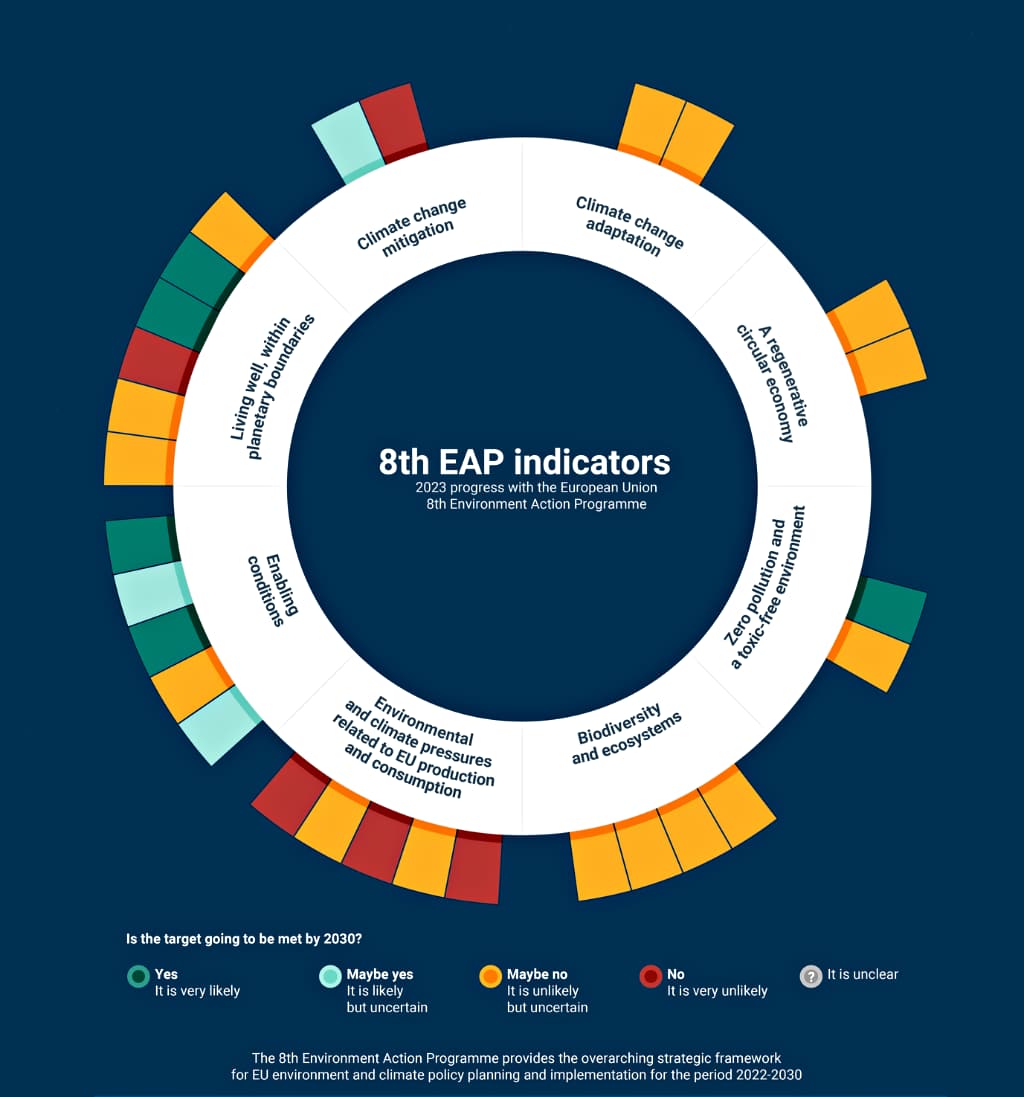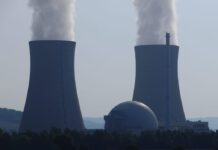The EU 8th Environment Action Programme (EAP) builds on the European Green Deal and sets the framework for EU environmental policy until 2030. Published today, the European Environment Agency's (EEA) first monitoring report on the Programme shows that the EU may not meet most of the monitoring targets outlined in the European Commission's 8th EAP Monitoring Communication. Stronger implementation by the Member States of existing laws, additional measures, and mainstreaming climate and environment in other policy domains are needed for faster progress.

The EEA's monitoring report on progress towards the 8th Environment Action Programme (EAP) objectives takes stock of progress towards Europe's key environment and climate goals, based on 28 indicators and monitoring targets. The report is the first of the series to be published annually until 2030.
According to the EEA analysis, the EU may not meet the majority of the targets by 2030. The situation looks particularly challenging when it comes to the 8th EAP priority objective of reducing environmental and climate pressures related to production and consumption. This includes targets on energy consumption, rate of circular material use, and share of area under organic farming, which all look very unlikely to be achieved by 2030.
However, the EEA report shows that the outlook of achieving several other 2030 monitoring targets looks positive. For instance, it is very likely that the share of green economy in the whole economy will continue to increase and that premature deaths attributable to exposure to fine particulate matter will decline in line with the zero-pollution action plan aim.
The EEA report also examines some of the conditions that can enable meeting the 8th EAP objectives. Overall, the outlook for putting these conditions in place by 2030 is positive, but phasing out fossil fuel subsidies without delay seems unlikely as most EU Member States still lack concrete plans to do so, the EEA report notes.
“Our analysis shows that Member States need to urgently strengthen actions to meet Europe's environment and climate ambitions by 2030. This includes full implementation of current laws, increased investments in future-proof technologies and making sustainability a central element in all policies.”
The EEA report concludes that a number of the 8th EAP monitoring targets reflect the high ambitions of the European Green Deal and that Member States may need more time to take measures to achieve them. At the same time, several of the targets require two to nine times faster pace of progress until 2030, compared with progress over the past 10 years. Overall, stronger implementation of existing legislation by the Member States, bringing forward additional policies and measures when necessary, and mainstreaming environment and climate policies into other policy areas are urgently needed, the EEA report states.
The 8th EAP monitoring targets and indicators were outlined by the European Commission in July 2022. The EEA will assess progress towards the 8th EAP priority objectives annually and use the results of the 8th EAP monitoring reports in its upcoming flagship report on the state and outlook of the European environment, due for publication in 2025.
European Environment Agency (EEA)
www.eea.europa.eu/en









